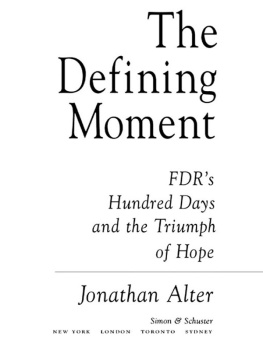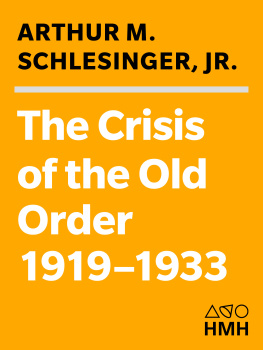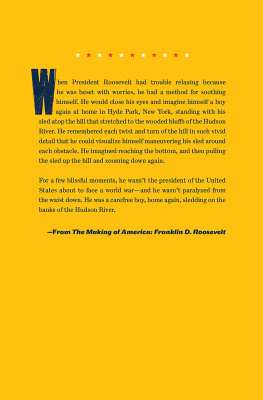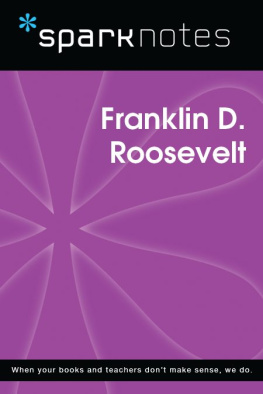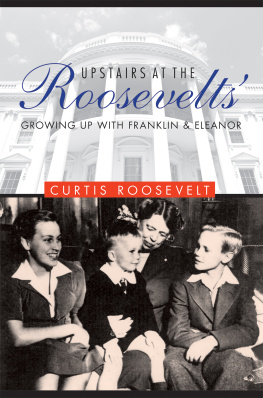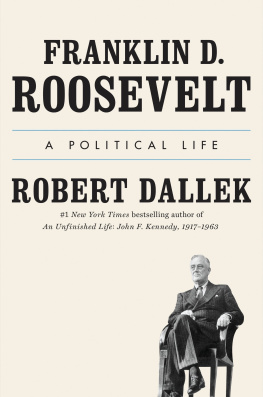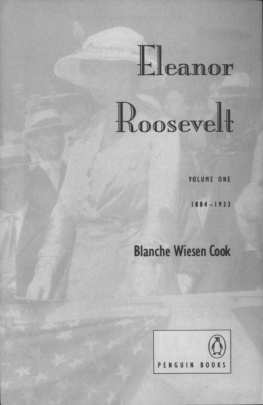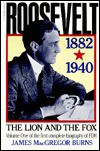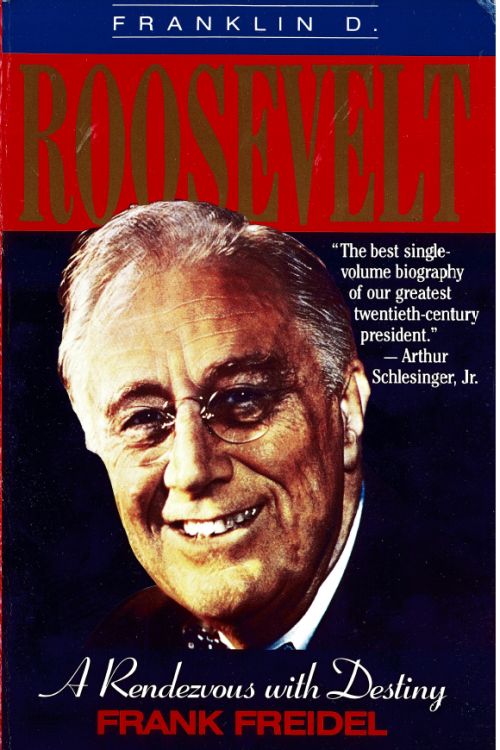Also by Frank Freidel
FRANKLIN D. ROOSEVELT
The Apprenticeship
FRANKLIN D. ROOSEVELT
The Ordeal
FRANKLIN D. ROOSEVELT
The Triumph
FRANKLIN D. ROOSEVELT
Launching the New Deal
FRANCIS LIEBER
Nineteenth-Century Liberal
THE SPLENDID LITTLE WAR
THE GOLDEN AGE OF AMERICAN HISTORY
(editor)
AMERICA IN THE TWENTIETH CENTURY
OVER THERE
F.D.R. AND THE SOUTH
THE PRESIDENTS OF THE UNITED STATES
OUR COUNTRYS PRESIDENTS
UNION PAMPHLETS OF THE CIVIL WAR
(editor)
HARVARD GUIDE TO AMERICAN HISTORY
(co-editor)
COPYRIGHT 1990 BY Frank Freidel
ALL RIGHTS RESERVED. EXCEPT AS PERMITTED UNDER THE U.S. COPYRIGHT ACT OF 1976, NO PART OF THIS PUBLICATION MAY BE REPRODUCED, DISTRIBUTED, OR TRANSMITTED IN ANY FORM OR BY ANY MEANS, OR STORED IN A DATABASE OR RETRIEVAL SYSTEM, WITHOUT THE PRIOR WRITTEN PERMISSION OF THE PUBLISHER.
Back Bay Books/Little, Brown and Company
Hachette Book Group
237 Park Avenue
New York, NY 10017
Visit our website at www.HachetteBookGroup.com
www.twitter.com/littlebrown
All photographs (following ) are reprinted courtesy of the Franklin D. Roosevelt Library, Hyde Park, New York.
First eBook Edition: November 2009
ISBN: 978-0-316-09241-8
For
Madeleine
and for
Christine and Irene
Chapter 1
I F, as Franklin D. Roosevelts parents had wished, he had grown up to become another Hudson River Valley aristocrat, managing the family estates, meeting civic and charitable obligations, and serving as vestryman of his church, there would have seemed nothing memorable in his rearing. It would have been of no wider interest than that of his older half-brother, James Roosevelt Roosevelt, an estimable socialite. Indeed, Franklin Roosevelt did mature to fill all the expected functions, to become, as one of his most ascerbic critics called him, a country squire, but with a difference.
Roosevelt came of age with firm roots in both the reform movements of the progressive era and the genteel Grover Cleveland conservatism of the late nineteenth century. He was in the tradition of both the social justice movement and the mugwumps. His wife, Eleanor Roosevelt, impatient for the quick righting of wrongs, was well aware of the conservative side of her husband. Once during World War II when the Roosevelts were bidding farewell to Prime Minister Winston Churchill, Roosevelt commented as they waved that Churchill was hopelessly Victorian. Mrs. Roosevelt thought to herself, You too, Franklin, are much in the nineteenth century.
Eleanor Roosevelt was correct; in some ways Roosevelt was a nine teenth-century figure like Disraeli and the Tory aristocrats in Victorian England, so certain of themselves that they dared undertake reforms. He was indeed anchored in the attitudes and traditions of the Roosevelts and the Delanos during the years of his upbringing, the last two decades of the nineteenth century. These views, with an emphasis upon the obligations of the well-born to aid those less fortunate than themselves, served as a base of belief. In his case they also gave him the self-assurance to innovate daringly on the premise that he was thus implementing the fundamentals he had learned at home and in his schooling.
Roosevelt, optimistic by nature, never doubted the mission of the American people and their great destiny. American history was so immediate and personal to him that he frequently illustrated it with stories of his forebears. They were patricians living on a comfortable estate at Hyde Park, New York. Together with their numerous relatives and friends they were the Hudson River counterpart to the landed gentry of England, secure in the financial means and social standing that had been theirs for generations. Roosevelt grew up with a strong sense of their lasting role in the community and the nation.
The Roosevelts early became established as successful merchants in New York City. The first of them, Claes Martenszen Van Rosenvelt, who arrived from the Netherlands in the seventeenth century, was, together with his son Nicholas, the common ancestor of Franklin Roosevelt and of Theodore Roosevelt and his niece Eleanor. The Hyde Park line began with the third generation, Jacobus Roosevelt, upon whose Dutch Bible Franklin D. Roosevelt took his oath of office as president.
Because the original spelling of the name was Van Rosenvelt (from the rose field), questions arose in both friendly and anti-Semitic circles whether the family was originally Jewish. In 1935, Roosevelt replied in response to one query, In the dim distant past they may have been Jews or Catholics or Protestantswhat I am more interested in is whether they were good citizens and believers in GodI hope they were both.
By the time of the American Revolution the Roosevelts were prosperous sugar refiners. Roosevelt, in 1939 when accused of being pro-British and pro-French, resorted to family tradition to try to prove otherwise, that the Roosevelt family, in the West Indian sugar business was compelled to contend many years against the British and French interests in those Islandsand that is what made them revolutionists rather than Tories in 1776. So far as the French were concerned, Roosevelt was not being accuratewhich again makes the story typical of his intermingling of family and history.
Roosevelt was rightly proud of the most notable of his ancestors, Isaac Roosevelt (17261794), who was one of the first New York State senators, responsible for the issuance of the states paper money, president of the Bank of New York, and a Federalist who served in the conven tion that ratified the Constitution. A fine Gilbert Stuart portrait of Isaac hung in the living room at Hyde Park. Still, Roosevelt would have liked Isaac to have been a bit less conservative. In his last days, while
Although Roosevelt was well aware that his ancestry was predominantly English, more so than that of Theodore Roosevelt, he liked to emphasize his Dutchness. It was good politics. Being Dutch implied economic enterprise, resourcefulness, good citizenship, and democracy. It also stood for stubbornness, which Roosevelt possessed aplenty, and led him in time to refer to himself in private as an old Dutchman. He was active in the Holland Society and the Netherlands-America Foundation, and was responsible for a renaissance of Dutch Colonial architecture in Hyde Park and its vicinity. On his last day of campaigning in 1944, speaking in Kingston, New York, he once more expressed pride in his descent from one of the original settlers who had served in the local militia.
In the nineteenth century, the Roosevelts moved to lands on the Hudson River about Poughkeepsie, where they assumed the role of country gentlemen. It was also the pattern of life of Warren Delano, who resided across the river near Newburgh and whose daughter Sara married James Roosevelt. Both Warren Delano and James Roosevelt maintained a serene, well-ordered existence within their families. Whether they were at home or traveling abroad, they seemed insulated against the pressures and unpleasantness of the everyday world.
Nevertheless, that world did absorb Warren Delano and James Roosevelt. Both were engaged in large enterprises. Delano won, lost, and rewon fortunes in the China trade, dealing in opium, and then became a heavy investor in Appalachian coal mines. James Roosevelt also invested in coal, but was primarily involved in railroads, serving for years as the vice president of the Delaware and Hudson, one of the coal routes. He too undertook daring business ventures, but less successfully than Delano. After the Civil War he became president of the first American holding company, which combined a number of lines south of Washington into what became the Southern Railway. It was a victim of the depression of the 1870s. Another of James Roosevelts speculations was a company seeking to build a canal across Nicaragua, a project that involved much lobbying in Washington. It too failed, but even during the depression years of the 1890s the Roosevelt family still had adequate money; their life went on with no discernible change or outside intrusions.


